Building Resilience - The Obstacle can be the Way
Copyright 2023 UpliftCentre
"In the middle of every difficulty lies opportunity." - Albert Einstein
"The gem cannot be polished without friction, nor man perfected without trials." - Chinese Proverb
“No Mud, No Lotus” - Thich Nhat Hanh
A helpful strategy in building resilience is to reframe the way we view the difficulties, stresses and obstacles that show up in our lives. Generally, we don’t like them. They are seen as frustrations to what we want to do; and at their worst they can feel overwhelming.
In contrast to this, many wisdom traditions emphasise the power of mindset and seeing challenges as opportunities and possible new pathways. If we can learn to practise some of this, it is true that the emotional storms often associated with stress can be lessened and we develop a greater resilience and character.
Stoicism principles
Marcus Aurelius, known today as the last of the five good Roman Emperors, was also a practitioner of the philosophy called Stoicism. Marcus often wrote about turning obstacles into opportunities for advancement and personal growth.
In his "Meditations" - a collection of personal insights and wisdom that he wrote for himself - Marcus emphasised that external events are beyond our control, but our reactions and attitudes are not. So focus on what you can control and stop fretting about things you have no control over. Marcus Aurelius said the mind can convert and change every hindrance to its activity into an aid. So when faced with adversity, one should maintain inner tranquility and respond with reason and virtue. By doing so, challenges can become opportunities for creativity and new possibilities, and to practice and strengthen one's character.
During his 19 years as emperor, Marcus faced constant difficulties and challenges - wars, plague, betrayal, a plotting stepbrother, depleted treasury and much more. He sought to see everything that came at him as an opportunity for personal development and learning by practising a virtue such as:
Wisdom (Sophia): Wisdom was a central virtue in Stoicism, and it encompassed the ability to discern what is within our control and what is not. It also involved understanding the impermanence of life and the transitory nature of external events. “This too shall pass”.
Courage (Andreia): Courage in Stoicism was not just physical bravery but also the strength to endure adversity and remain steadfast in the face of difficulties. It meant facing challenges with resilience and a sense of purpose.
Justice (Dikaiosyne): Justice was about treating others and oneself with fairness, respect, and kindness. It involved recognizing the interconnectedness of humanity and the importance of acting in a way that benefits the greater good.
Temperance (Sophrosyne): Temperance referred to self-control and moderation. It meant avoiding excesses and living a life of balance. In the face of obstacles, it encouraged maintaining emotional stability and not being overwhelmed by negative emotions.
Practical Wisdom (Phronesis): Practical wisdom was the ability to apply philosophical principles in daily life. It involved making sound judgments, especially in challenging situations, and acting in accordance with Stoic teachings.
Resilience (Endurance, Patience): Marcus Aurelius emphasized the importance of resilience, the capacity to endure adversity without complaint. He believed that setbacks were opportunities to test and strengthen one's character.
Rationality (Logos): Rationality was the foundation of Stoic thought. It meant approaching problems and challenges with reason and logic, rather than being swayed by irrational emotions. (Think of Spock in Star Trek)
Seneca was another Stoic philosopher of Ancient Rome - a statesman and dramatist who also endured many highs and lows including ten years recuperating from an illness in Egypt. He is one of the most enjoyable and readable of all ancient philosophers with his most notable works in the form of letters. See Letters from a Stoic: Complete (Letters 1 - 124) Adapted for the Contemporary Reader.
A couple of Seneca quotes:
“Think your way through difficulties: harsh conditions can be softened, restricted ones can be widened, and heavy ones can weigh less on those who know how to bear them.”
“Let all your activity be directed to some object, let it have some end in view.”
Ryan Holiday’s book The Obstacle is the Way: The Ancient Art of Turning Adversity to Advantage (The Way, the Enemy and the Key), is a great resource to learn more about Stoic philosophy and practises.
Buddhism and Zen philosophy
In Buddhism and Zen philosophy, there is a similar view that obstacles can be seen as opportunities for growth and transformation. This perspective is rooted in the teachings of impermanence, suffering, and mindfulness. On The Path of Transformation obstacles are opportunities to practice different aspects of the path, such as
right understanding,
right intention,
right speech,
right effort.
Each obstacle provides a chance for individuals to refine their practice and develop greater wisdom, compassion, and skillful action.
"The Heart of the Buddha's Teaching: Transforming Suffering into Peace, Joy, and Liberation" by Thich Nhat Hanh is a great resource for those interested in understanding the path of transformation in Buddhism.
When Things Fall Apart: Heart Advice for Difficult Times by Pema Chödrön is also a wonderful little resource book
The Bible
The Bible similarly contains various passages that convey the idea that obstacles and challenges can be seen as opportunities for growth and transformation. Underlying themes of perseverance, faith, and spiritual development are present throughout the bible. Here are a few verses that reflect this perspective:
Romans 5:3-4 (NIV): "Not only so, but we also glory in our sufferings, because we know that suffering produces perseverance; perseverance, character; and character, hope."
This passage suggests that facing difficulties can lead to perseverance, character development, and ultimately, a sense of hope.
James 1:2-4 (Message): "Consider it a sheer gift, friends, when tests and challenges come at you from all sides. You know that under pressure, your faith-life is forced into the open and shows its true colors. So don’t try to get out of anything prematurely. Let it do its work so you become mature and well-developed, not deficient in any way."
This verse encourages Christians to find joy in trials and tribulations, as they can contribute to the development of patience and completeness.
Proverbs 3:5-6 (NIV): "Trust in the Lord with all your heart and lean not on your own understanding; in all your ways submit to him, and he will make your paths straight."
This verse encourages trust in God even when faced with challenges, suggesting that reliance on a higher power can lead to a more direct and purposeful path.
Philippians 4:13 (NIV): "I can do all this through him who gives me strength."
This verse, often quoted for encouragement, implies that believers can overcome challenges through their faith and the strength provided by a higher power.
The idea that challenges can lead to growth, perseverance, and transformation aligns with the broader theme of spiritual development found throughout the Bible.
Having a deeper understanding of the particular verse examples above is best done by considering the broader theological and contextual meanings within the Christian faith. For a deeper dive you could explore The 16 Best Christian Books You Should Read in 2023 by Jeffery Curtis Poor.
Physical growth as an analogy
An analogy that reflects this idea of challenges and resistance being positive, is our physical development. We learn from an early age that we build up our strength and performance through lifting and carrying progressively heavier weights, and pushing through to improve our personal best in whatever activity we’re involved in. The DNA of “survival of the fittest” is still in all of us.
Most people like the challenge of improving themselves; and with this goal in mind we view a heavier weight, raised bar, higher wave, or further distance as an opportunity to further develop our strength and performance… to get better. There is truth in the old saying: “There are no gains, without pains”, even if it does need tempering with wisdom.
Building our physical strength is developed through a journey of weights and resistance. Similarly, building our emotional and mental strength is developed through a journey of life's burdens.
If we can reframe the things that emotionally stress us as opportunities to build our psychological strength, we feel more empowered:
1. Resistance and Stress as Weightlifting: In the world of physical fitness, resistance training involves lifting progressively heavier weights. Similarly, in life, emotional and psychological strength is developed when we face and overcome challenges. Think of difficulties and stress as the weights we lift in the gym of life. They provide the necessary resistance for growth.
2. Muscle Growth and Adaptation: When we lift weights, we create micro-tears in our muscle fibres. In response, our body repairs and strengthens those fibers, leading to muscle growth. Similarly, when we face difficulties and stress, we encounter emotional and psychological "tears" or challenges. As we navigate these challenges, our emotional and psychological resilience is strengthened through adaptation.
3. Progressive Overload: In strength training, we progressively increase the resistance to keep the muscles growing. Likewise, as we face life's difficulties, we encounter progressively more complex and demanding situations. These experiences force us to adapt and grow, just as we'd increase the weight lifted over time. However, the caveat here is too much weight or resistance beyond our capacity will injure us.
4. Rest and Recovery: Just as recovery is essential in physical training, it's crucial in emotional and psychological development. After a tough workout, we need rest to let muscles recover and grow. Similarly, after dealing with stress and difficulties, it's vital to allow ourself time for reflection, self-care, and recuperation. Similarly if we are injured, we need to take time out for healing and follow professional advice on what’s needed to return to wellbeing .
5. Balanced Training: In strength training, it's important to balance different muscle groups. In life, it's crucial to address various aspects of our emotional and psychological well-being. This means not only facing challenges but also seeking support, finding moments of joy, and practicing self-compassion.
6. Mindset Matters: Just as a positive mindset in the gym can lead to better results, having a growth mindset when dealing with life's challenges can make a significant difference. Viewing difficulties as opportunities for growth and learning can lead to more positive emotional and psychological outcomes.
7. Goals and Progress Tracking: In both physical training and emotional development, setting goals and tracking progress can be motivating. Recognizing how far we've come in terms of emotional and psychological growth can boost our well-being.
8. Building Resilience: Like building physical resilience, dealing with stress and difficulties helps build emotional and psychological resilience. We become better equipped to handle future challenges, and our overall well-being improves.
In summary, the analogy between physical strength training and building emotional and psychological strength through stress and difficulties, underscores the idea that challenges are not merely obstacles but opportunities for growth.
By embracing these challenges and viewing them as a form of resistance training for the mind and emotions, we can enhance our emotional resilience, psychological well-being, and overall strength to navigate life's complexities. This is wisdom that is contained in many of the great philosophical and religious teachings throughout the ages.
“When everything seems to be going against you, remember that the airplane takes off against the wind, not with it.” – Henry Ford.
"The enemy of art is the absence of limitations" - Orson Welles
See also: On Resilience





